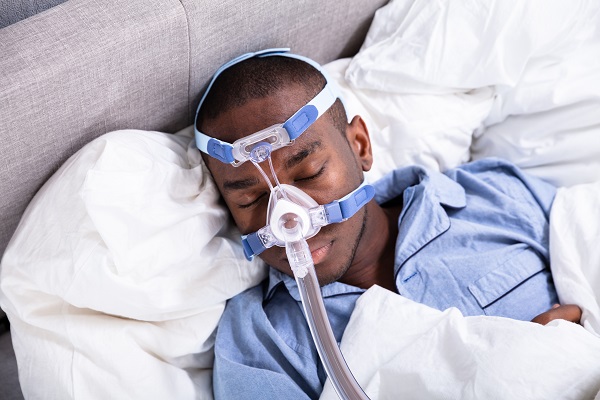Reasons to Treat Sleep Apnea With a Dental Oral Appliance

Wondering how to treat your sleep apnea? This sleep disorder causes you to stop breathing during the night, which is caused by either your tongue or excess tissues blocking the back of your throat. Common signs associated with this condition include snoring, headaches, a dry throat, grinding or clenching teeth, mood swings, feeling tired and gasping for air during the night.
Oral appliance therapy
Understanding the oral appliance therapy options for treating sleep apnea is necessary when you have been diagnosed with sleep apnea. The fact that there are a few different types of oral appliances available makes it a good idea for you to understand how each type of oral appliance works. Common types of dental oral appliances include a CPAP machine, a mandibular advancement device and a tongue-retaining device.
According to the American Academy of Dental Sleep Medicine, oral appliance therapy is an effective treatment option for snoring and obstructive sleep apnea, as a custom-fit oral sleep appliance can improve your sleep, restore your alertness and revitalize your health.
Reasons to treat sleep apnea with a dental oral appliance
The list below includes common reasons for using a particular type of oral appliance in order to treat this common sleep disorder.
#1. Reasons to use a CPAP machine
Why treat sleep apnea with a CPAP machine? One reason that sleep apnea patients are choosing this type of dental oral appliance is that it allows them to get a restful night's sleep. Two additional reasons include that CPAP machines are easy to use and provide users with a sufficient amount of air during the night to support their good overall health.
#2. Reasons to use a mandibular advancement device
Mandibular devices are also known as dental sleep devices. The reason sleep apnea patients are choosing this type of oral appliance is that it keeps their airway open during the night, allowing them to breathe easier. This particular device moves the lower jaw forward, which in turn, helps keep the tongue from blocking the throat when sleeping.
#3. Reasons to use a tongue-retaining device
Tongue-retaining devices are dental oral appliances that hold the tongue in a way that prevents it from blocking one's airway when sleeping during the night. It consists of a small piece of plastic that fits over the lips and includes an opening in order to insert the tongue. In order for this particular type of dental oral appliance to work, a patient's tongue must be able to stick out of their mouth far enough for it to be securely held by the device.
Are you in need of a dental oral appliance?
When you are diagnosed with sleep apnea, this potentially serious sleep disorder is one that requires treatment. Since there are a few different types of treatments available for those who have been diagnosed with sleep apnea, it is important to choose one that is right for you. When you make an appointment with us, you will learn everything there is to know about the oral appliances that can treat your sleep apnea.
Request an appointment here: https://www.sabinodental.com or call Sabino Dental at (520) 308-6711 for an appointment in our Tucson office.
Check out what others are saying about our dental services on Yelp: Sleep Apnea in Tucson, AZ.
Related Posts
Sleep apnea is a common, concerning, but treatable condition. Individuals who suffer from this condition may snore loudly, gasp for breath, or snort in their sleep. People with severe cases may even stop breathing at night for short periods. People with this condition often wake up feeling unrefreshed, have severe daytime fatigue, and experience regular…
Obstructive sleep apnea is a disorder many people suffer from. Essentially, it is when breathing stops while sleeping. While this is considered a serious medical condition, the consequences of having sleep apnea usually do not pose a health risk. However, sometimes it can be dangerous, so you should always speak to your doctor upon noticing…
A dental checkup is one of the most important things to have done. General dentists recommend that check-ups be had at least twice a year. People of all ages should make these appointments a priority, so find out why below. Just like doctors' appointments, dentist appointments also play a crucial role in a person’s overall health.…
Following the treatment of periodontal disease, it is vital that a patient keeps the Dental Checkup appointments that the dentist recommends. Periodontal maintenance, which typically requires dental check-ups every three months post-treatment, is essential for continuing results. Without routine maintenance, the patient risks a relapse in oral health.Periodontal disease is a chronic oral health condition…
